Items
Search full-text
“Activism leads to a Disability Royal Commission”
-
 "Incite Arts Disability Engagement Policy and Action Plan 2020-25" InCite Arts Disability Engagement Policy & Action Plan, reads, in part "People with disability are a key focus of InCite Arts. When we say we work with people with disability, we mean anyone with sensory or physical impairments, hidden impairments, intellectual or neurological impairments or mental health issues. We welcome and value the participation of people with disability in all areas of our work, and we aim to make sure that people with disability have full access to our program, organisation and venues."
"Incite Arts Disability Engagement Policy and Action Plan 2020-25" InCite Arts Disability Engagement Policy & Action Plan, reads, in part "People with disability are a key focus of InCite Arts. When we say we work with people with disability, we mean anyone with sensory or physical impairments, hidden impairments, intellectual or neurological impairments or mental health issues. We welcome and value the participation of people with disability in all areas of our work, and we aim to make sure that people with disability have full access to our program, organisation and venues." -
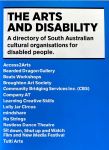 "The Arts and Disability No Date #2" Except as permitted by copyright law, you may not reproduce or communicate any of the content on this website, including files downloadable from this website, without the permission of the copyright owner. The Australian Copyright Act allows certain uses of content from the internet without the copyright owner’s permission. This includes uses by educational institutions and by Commonwealth and State governments, provided fair compensation is paid to the copyright owner. For more information, see www.copyright.com.au and www.copyright.org.au.
"The Arts and Disability No Date #2" Except as permitted by copyright law, you may not reproduce or communicate any of the content on this website, including files downloadable from this website, without the permission of the copyright owner. The Australian Copyright Act allows certain uses of content from the internet without the copyright owner’s permission. This includes uses by educational institutions and by Commonwealth and State governments, provided fair compensation is paid to the copyright owner. For more information, see www.copyright.com.au and www.copyright.org.au. -
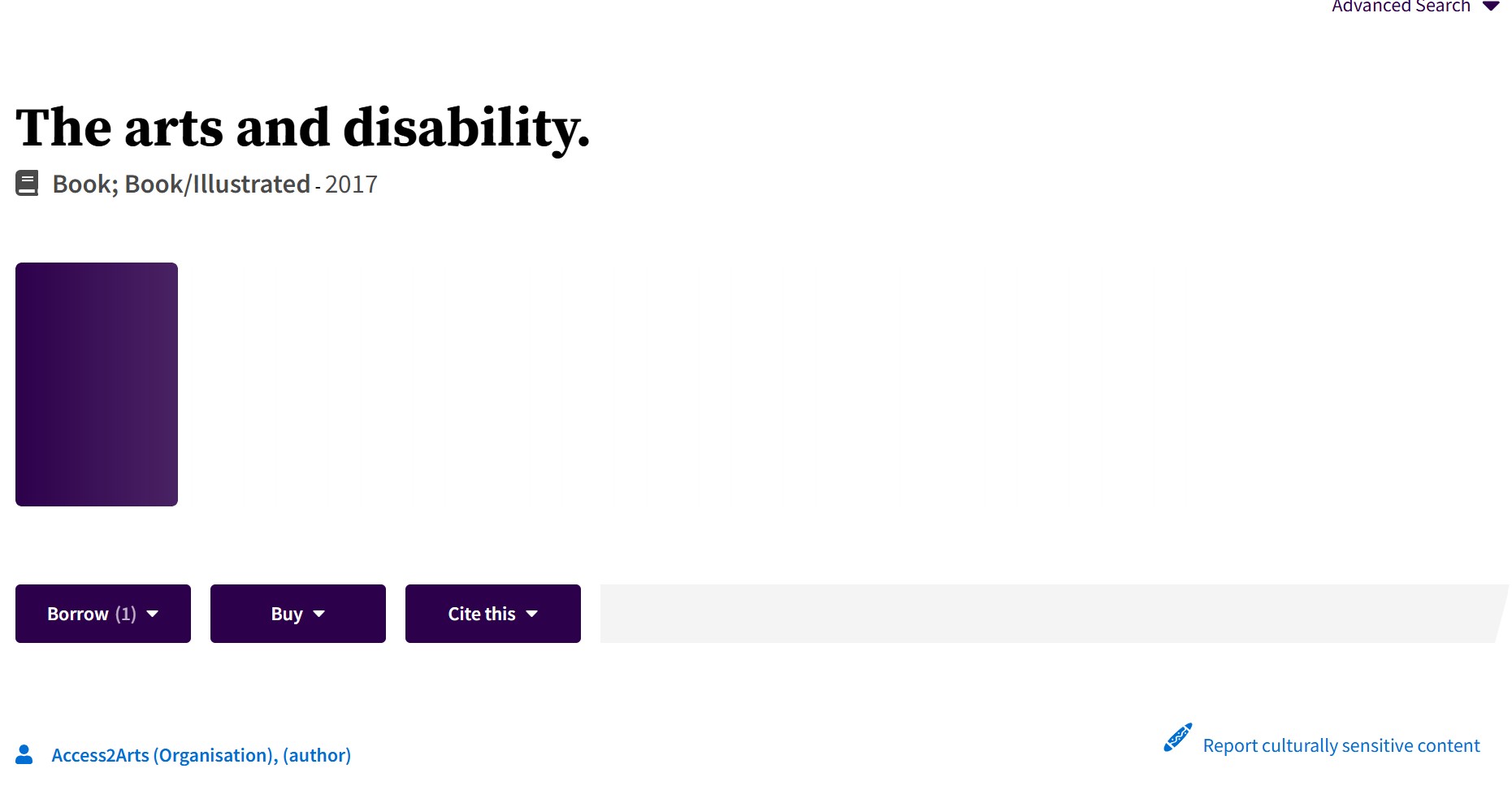 "The Arts and Disability 2017" This booklet/brochure provides images, descriptions of the work, and contact details and contact organisations for key organisations in South Australia including: Access2Arts; Company AT; Mindshare; No Strings Attached Theatre of Disability; Restless Dance Theatre; Sit Down, Shut Up and Watch Film and New Media Festival; Sisters of Invention, Tutti Arts; The Jame, The Mix, The Gig.
"The Arts and Disability 2017" This booklet/brochure provides images, descriptions of the work, and contact details and contact organisations for key organisations in South Australia including: Access2Arts; Company AT; Mindshare; No Strings Attached Theatre of Disability; Restless Dance Theatre; Sit Down, Shut Up and Watch Film and New Media Festival; Sisters of Invention, Tutti Arts; The Jame, The Mix, The Gig. -
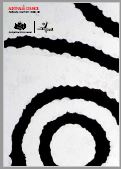 "Australia Council - Annual Report 2005-06" Australia Council Annual Report 2005-2006 - discusses letter from chair of council, letter from CEO, corporate overview, year in review, goals, financial statements, analysis of funding analysis and grants list, including various artistic and community projects - “Stickybricks” – exploring the history of a Sydney Housing Estate where 95% of residents receive aged or disability benefits were traumatised by by murders, suicides, assaults and drug and alcohol-related crimes and they partnered with Big hART to tell their story at the Sydney Festival, “Small Metal Objects” by Back to Back Theatre presented at the Melbourne international arts festival, and the DADAA (WA) regional collaborative “Bridging the Gap” project in Bunbury and publication of “Making the Journey: Arts and disability in Australia”
"Australia Council - Annual Report 2005-06" Australia Council Annual Report 2005-2006 - discusses letter from chair of council, letter from CEO, corporate overview, year in review, goals, financial statements, analysis of funding analysis and grants list, including various artistic and community projects - “Stickybricks” – exploring the history of a Sydney Housing Estate where 95% of residents receive aged or disability benefits were traumatised by by murders, suicides, assaults and drug and alcohol-related crimes and they partnered with Big hART to tell their story at the Sydney Festival, “Small Metal Objects” by Back to Back Theatre presented at the Melbourne international arts festival, and the DADAA (WA) regional collaborative “Bridging the Gap” project in Bunbury and publication of “Making the Journey: Arts and disability in Australia” -
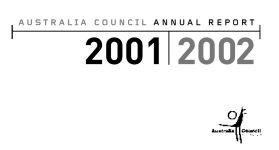 "Australia Council - Annual Report 2001-02" Australia Council Annual Report 2001-2002 - discusses letter from chair of council, corporate overview, year in review, financial statements, analysis of funding and grants for projects, initiatives, new work, programs, presentation and promotions including funding for implementing the Commonwealth Disability Strategy by evaluating current and changing needs of people with disabilities in the arts sector and reflecting this in funding and policies, arts marketing and audience development and triennial grants to disability arts organisations in NSW, South Australia and Victoria as well as an image from Crossroad Arts for the exhibition “Shades of White” and the publication “Making the Journey”
"Australia Council - Annual Report 2001-02" Australia Council Annual Report 2001-2002 - discusses letter from chair of council, corporate overview, year in review, financial statements, analysis of funding and grants for projects, initiatives, new work, programs, presentation and promotions including funding for implementing the Commonwealth Disability Strategy by evaluating current and changing needs of people with disabilities in the arts sector and reflecting this in funding and policies, arts marketing and audience development and triennial grants to disability arts organisations in NSW, South Australia and Victoria as well as an image from Crossroad Arts for the exhibition “Shades of White” and the publication “Making the Journey” - Rawcus
- InCite Youth Arts
- Alice Springs Youth Arts Group (ASYAG)
- Petra Kuppers
- Lachlan MacDowall
-
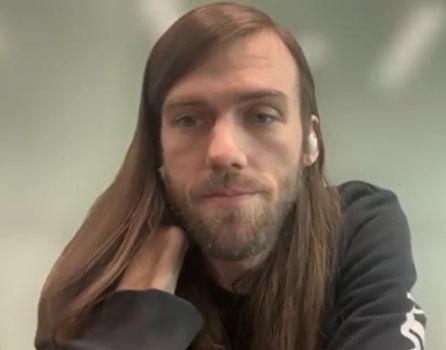 "Interview with Daniel Savage" Daniel Savage is an artist and disability advocate working in mediums of photography, video and performance. Interview Summary: Daniel discussed his background as a disabled contemporary artist primarily focused on photography, with additional interests in video and performance. Daniel detailed the journey through his artistic career, highlighting significant experiences such as art school education, early influences, and the impact of acquiring a disability. He also explored the evolution of his style and interests, particularly his shift towards digital technology and his involvement in advocacy for accessibility in the arts. Daniel also shared his perspectives on the challenges and achievements within the disability arts scene in Australia, including public awareness and integration with contemporary art.
"Interview with Daniel Savage" Daniel Savage is an artist and disability advocate working in mediums of photography, video and performance. Interview Summary: Daniel discussed his background as a disabled contemporary artist primarily focused on photography, with additional interests in video and performance. Daniel detailed the journey through his artistic career, highlighting significant experiences such as art school education, early influences, and the impact of acquiring a disability. He also explored the evolution of his style and interests, particularly his shift towards digital technology and his involvement in advocacy for accessibility in the arts. Daniel also shared his perspectives on the challenges and achievements within the disability arts scene in Australia, including public awareness and integration with contemporary art. -
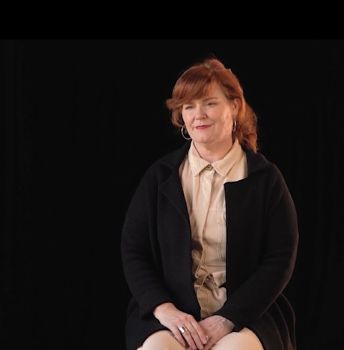 "Interview with Julie Moralee" Julie Moralee is the Chief Executive Officer of Restless Dance Theatre, bringing a wealth of experience in marketing, business development, and festival organisation within the arts sector. Her leadership focuses on showcasing the talents of artists with disability and ensuring sustainable employment opportunities in the arts. Interview Summary Julie Moralee is the CEO of Restless Dance Theatre, where she has focused on promoting the talent and abilities of artists with disability. With a commitment to ensuring sustainable full-time employment in the arts for these artists, she emphasises the importance of audience impact and high-quality performances as measures of success. Julie is mindful of the challenges and perceptions within the disability arts sector and envisions a future where the label "disability art" becomes obsolete, as the quality of the work transcends its creators
"Interview with Julie Moralee" Julie Moralee is the Chief Executive Officer of Restless Dance Theatre, bringing a wealth of experience in marketing, business development, and festival organisation within the arts sector. Her leadership focuses on showcasing the talents of artists with disability and ensuring sustainable employment opportunities in the arts. Interview Summary Julie Moralee is the CEO of Restless Dance Theatre, where she has focused on promoting the talent and abilities of artists with disability. With a commitment to ensuring sustainable full-time employment in the arts for these artists, she emphasises the importance of audience impact and high-quality performances as measures of success. Julie is mindful of the challenges and perceptions within the disability arts sector and envisions a future where the label "disability art" becomes obsolete, as the quality of the work transcends its creators -
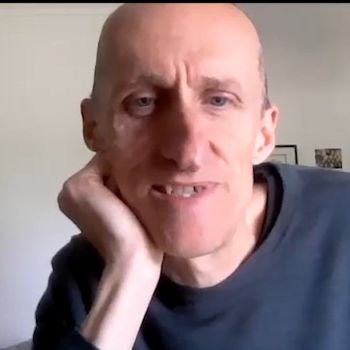 "Interview with Andy Jackson" Andy Jackson is a published poet focusing on disability and difference, has completed a PhD and is a lecturer of poetry and creative writing. INTERVIEW SUMMARY This is an oral history interview with poet Andy Jackson. Andy, who has Marfan syndrome, discusses how disability and visible difference have shaped his writing and poetry, explaining that he often writes about the meaning of the body within society. He emphasizes the importance of Disability Arts, noting a growing community of disabled writers and expressing the need for both disability-specific literary spaces and mainstream recognition. Andy also highlights the transformative role of online communities in creating networks for disabled individuals and the emergence of disability-focused literary journals, anticipating an anthology from a collaborative writing project he is involved with.
"Interview with Andy Jackson" Andy Jackson is a published poet focusing on disability and difference, has completed a PhD and is a lecturer of poetry and creative writing. INTERVIEW SUMMARY This is an oral history interview with poet Andy Jackson. Andy, who has Marfan syndrome, discusses how disability and visible difference have shaped his writing and poetry, explaining that he often writes about the meaning of the body within society. He emphasizes the importance of Disability Arts, noting a growing community of disabled writers and expressing the need for both disability-specific literary spaces and mainstream recognition. Andy also highlights the transformative role of online communities in creating networks for disabled individuals and the emergence of disability-focused literary journals, anticipating an anthology from a collaborative writing project he is involved with. -
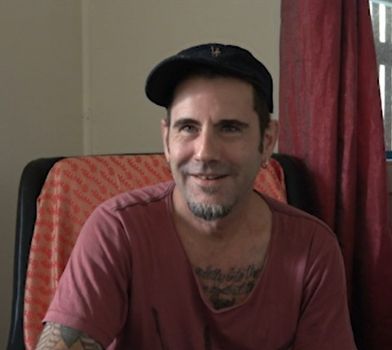 "Interview with Jeremy Hawkes" Jeremy Hawkes is a multidisciplinary artist working in sculpture, drawing, painting and photography as well as being a writer, educator and disability arts leader. Interview Summary Jeremy Hawkes, a visual artist, opened up about his life and identity during his interview. After a debilitating workplace accident, he had to reimagine his sculptural practice due to his acquired disability and ventured into drawing, which helped him cope with multiple operations and diagnoses. Jeremy's art explores themes of identity and the interconnectedness between the macro and the micro, drawing inspiration from neurobiology and medical imagery. Despite his struggles, Jeremy commits to his studio daily, aims for success without fear, and advocates for greater visibility and opportunities for artists with disabilities.
"Interview with Jeremy Hawkes" Jeremy Hawkes is a multidisciplinary artist working in sculpture, drawing, painting and photography as well as being a writer, educator and disability arts leader. Interview Summary Jeremy Hawkes, a visual artist, opened up about his life and identity during his interview. After a debilitating workplace accident, he had to reimagine his sculptural practice due to his acquired disability and ventured into drawing, which helped him cope with multiple operations and diagnoses. Jeremy's art explores themes of identity and the interconnectedness between the macro and the micro, drawing inspiration from neurobiology and medical imagery. Despite his struggles, Jeremy commits to his studio daily, aims for success without fear, and advocates for greater visibility and opportunities for artists with disabilities. - Donna McDonald
- David Doyle
-
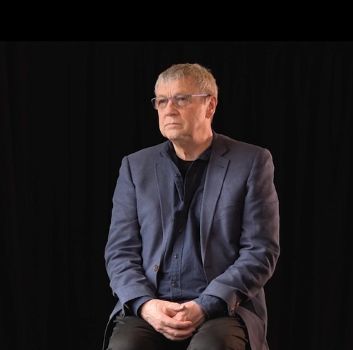 "Interview with Nick Hughes" Nick has worked as an actor, director, writer, artistic director, dramaturg and was the Company Manager for Restless Dance Theatre Interview Summary Nick Hughes is a retired arts administrator who has worked in various capacities within the arts industry, including as an actor, writer, stage manager, and notably as the company manager for Restless Dance Theatre. Nick gained degrees in drama, and sociology, and moved from the UK to Australia in 1973. During the interview, Nick reflects on his significant contributions to the arts and disability sectors. Despite being unfamiliar with disability arts in the beginning, Nick says he became deeply involved and committed to the field, valuing disability arts for the social and political aspects. Nick discusses witnessing first-hand the growth and development of individuals through creative expression. Throughout his career, Nick says he has seen the evolution and increasing recognition of disability arts as a legitimate and powerful art form capable of altering people’s perceptions and advocating for inclusivity and equality in society.
"Interview with Nick Hughes" Nick has worked as an actor, director, writer, artistic director, dramaturg and was the Company Manager for Restless Dance Theatre Interview Summary Nick Hughes is a retired arts administrator who has worked in various capacities within the arts industry, including as an actor, writer, stage manager, and notably as the company manager for Restless Dance Theatre. Nick gained degrees in drama, and sociology, and moved from the UK to Australia in 1973. During the interview, Nick reflects on his significant contributions to the arts and disability sectors. Despite being unfamiliar with disability arts in the beginning, Nick says he became deeply involved and committed to the field, valuing disability arts for the social and political aspects. Nick discusses witnessing first-hand the growth and development of individuals through creative expression. Throughout his career, Nick says he has seen the evolution and increasing recognition of disability arts as a legitimate and powerful art form capable of altering people’s perceptions and advocating for inclusivity and equality in society. - Caroline Bowditch
-
"Access2Arts (SA) established in 2009" Access2Arts (SA) was established in 2009. In their own words, “following on from many years of work by the Community Arts Network SA (CANSA), a project was created within Arts SA called the Disability Arts Transition Team. This led to our establishment as an independent body to represent, advocate and respond to the needs of the arts and disability sectors.” The organisation became incorporated in 2013. They are the body for arts and disability in South Australia.
-
"The Commonwealth Rehabilitation Service (CRS) established in 1941." Following the first and second world wars, there was better recognition of veteran disability and the Commonwealth Rehabilitation Service (CRS) was established.
-
"Kath Duncan, Gerard Goggin (2002). 'Something in Your Belly': Fantasy, Disability and Desire in My One Legged Dream Lover. Disability Studies Quarterly 22 (4), pp: 127-144." In this article we explore fantasy, disability and desire in the groundbreaking 1998 Australian TV documentary My One-Legged Dream Lover. Based upon self-reflexive documentary conventions, the video uncovers journalist-cum-freak raconteur Kath Duncan's explorations into the world of amputee fetish. Duncan is a double congenital amputee. She says," I've tried most things men, women, sex toys, unusual locations, dominance and submission games but I wanted to know what it was like to be desired because of my impairments." Gerard Goggin is a temporarily able-bodied (or TAB) academic with his own history of queer desire and a personal investment in exploring issues of difference. Duncan's and Goggin's collaboration includes accessing each other's edgier fantasies, aiming to give voice to some of the negotiations, anxieties, pleasures, and risks we have taken, speaking across the chasm of our personal histories, different genders and respective bodies.
-
"Catherine Grant (2013). Participating in arts- and cultural-sector governance in Australia: Experiences and views of people with disability. Arts & Health, 6(1), 75–89. https://doi.org/10.1080/17533015.2013.826259" Reads, in part "This study sought the perceptions and experiences of people with disability relating to their potential or current involvement in the governance of arts and cultural organisations in Australia. Methods: A total of 32 people participated in an online survey, and results were analysed qualitatively and quantitatively. Results: The findings revealed that those participants who had been involved in governance benefited from it in terms of self-esteem, participation in society and well-being." Contains tables with survey data.
-
"Australia Council for the Arts (2018) Creating Pathways: Insights on support for artists with disability. 19 September 2018" Reads, in part "This report brings together findings and insights from a range of research undertaken in 2017–18 to inform the Council’s approach to future support for artists with disability."
-
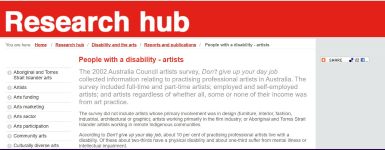 “Australia Council - People with a disability - artists 2003” Sourced from 'Australia Council- Don’t give up your day job: An Economic Study of Professional Artists in Australia' (Throsby and Hollister 2003) based on 2002 Survey - The website reads “The 2002 Australia Council artists survey, Don't give up your day job collected information relating to practising professional artists in Australia…..According to Don't give up your day job, about 10 per cent of practising professional artists live with a disability.”
“Australia Council - People with a disability - artists 2003” Sourced from 'Australia Council- Don’t give up your day job: An Economic Study of Professional Artists in Australia' (Throsby and Hollister 2003) based on 2002 Survey - The website reads “The 2002 Australia Council artists survey, Don't give up your day job collected information relating to practising professional artists in Australia…..According to Don't give up your day job, about 10 per cent of practising professional artists live with a disability.” -
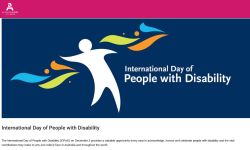 "Accessible Arts - International Day of People With Disability, captured 2022" Accessible Arts - International Day of People With Disability - reads, in part "The International Day of People with Disability (IDPwD) on December 3 provides a valuable opportunity every year to acknowledge, honour and celebrate people with disability and the vital contributions they make to arts and culture here in Australia and throughout the world."
"Accessible Arts - International Day of People With Disability, captured 2022" Accessible Arts - International Day of People With Disability - reads, in part "The International Day of People with Disability (IDPwD) on December 3 provides a valuable opportunity every year to acknowledge, honour and celebrate people with disability and the vital contributions they make to arts and culture here in Australia and throughout the world."
